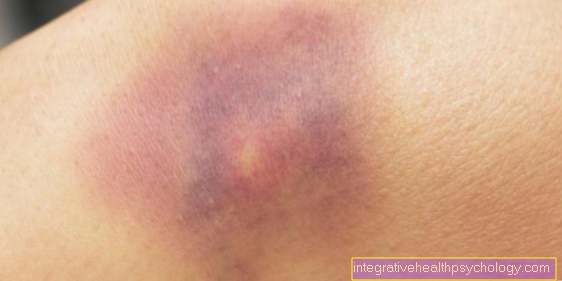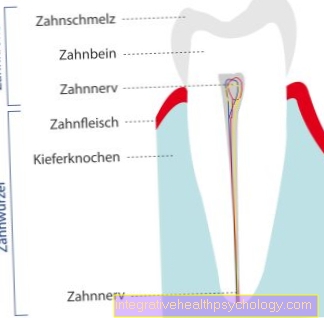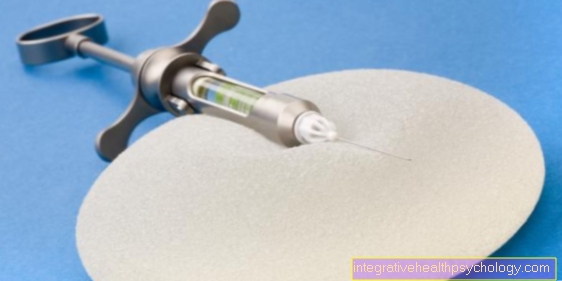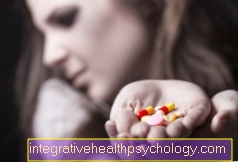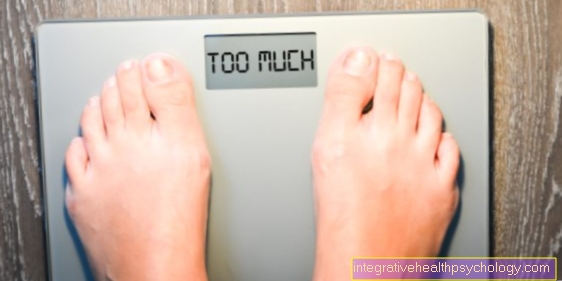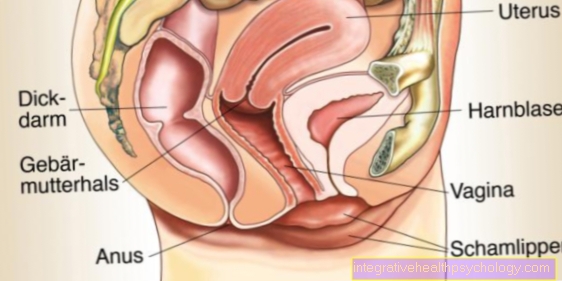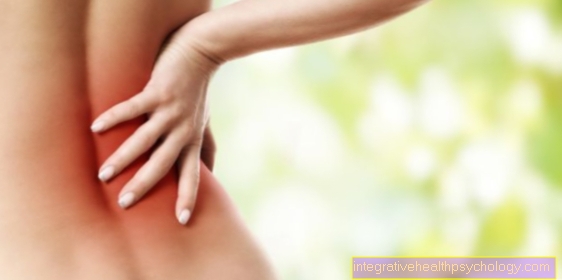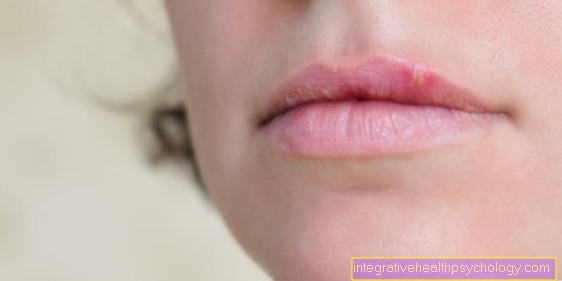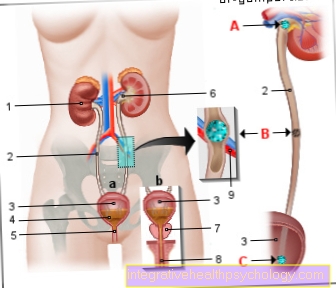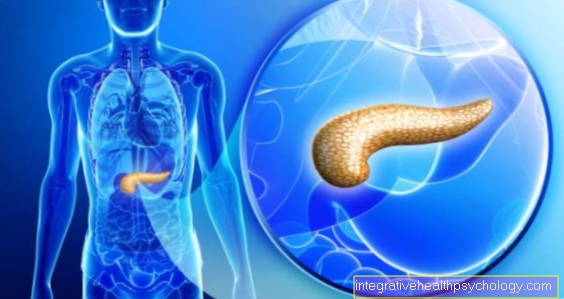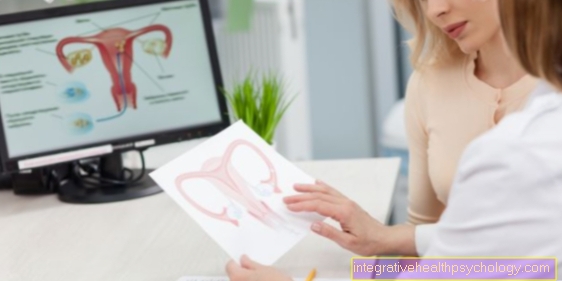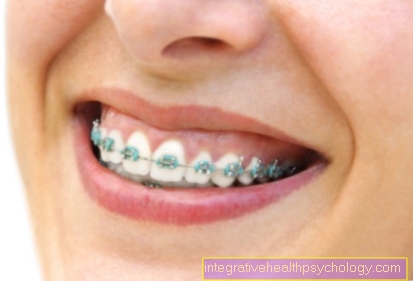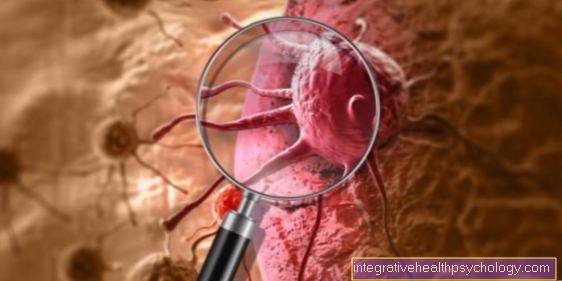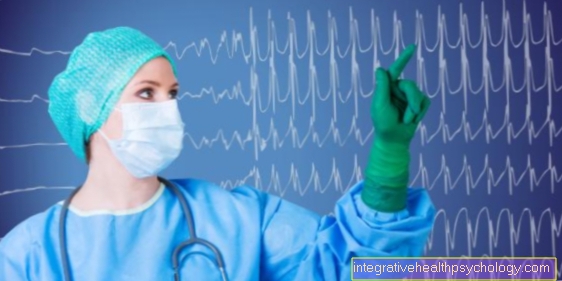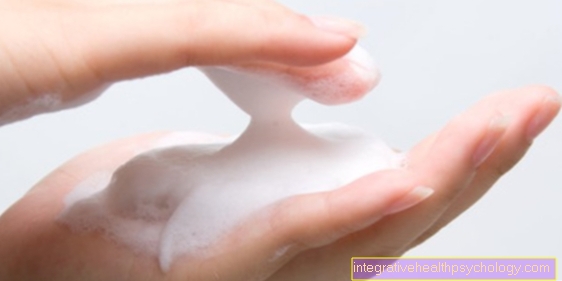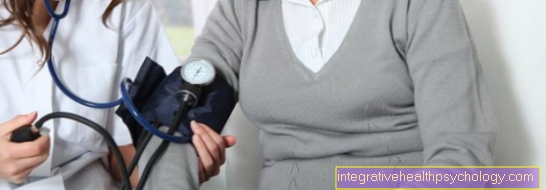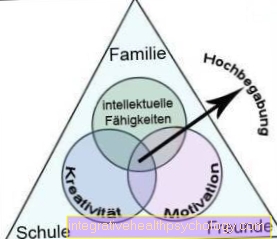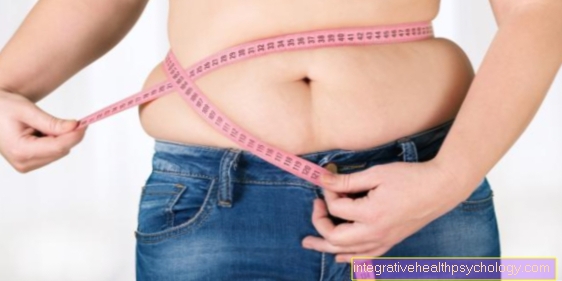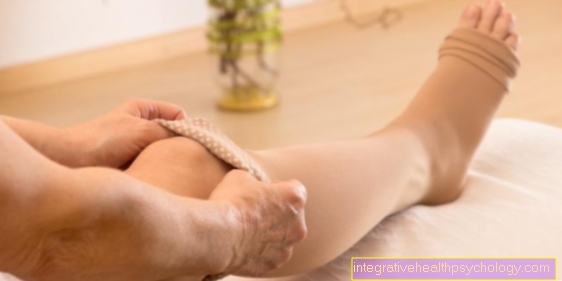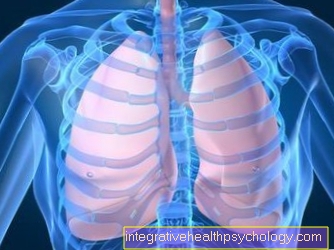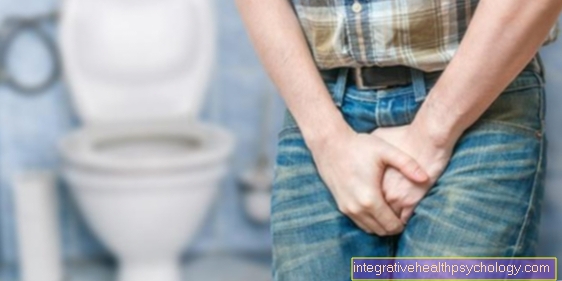Antibiotics after a root canal treatment
definition
An antibiotic is a drug that helps the body kill the bacteria in the event of an acute infection. Each antibiotic has a different mechanism of action and is therefore used specifically for certain diseases.
In the dental field, e.g. in the case of inflammation in the jaw, the antibiotic amoxicillin has prevailed. This is also prescribed after a root canal treatment, when the inflammation is very severe and accompanied by pus.

Who needs an antibiotic after a root canal treatment?
Antibiotics are rarely indicated after a root canal treatment. If the inflammation is very severe, pus is often involved. This flows out of the tooth when it is opened and indicates that there are many bacteria in the inflammatory cavity. This disease is often accompanied by severe pain and sensitivity to hot and cold in advance. In some cases, the body cannot counter the high number of bacteria itself.
This is where the antibiotic helps by reducing the number and thus curing the inflammation. However, no antibiotic is usually necessary after a root canal treatment. If there is a tendency to spread, one should be prescribed one to be on the safe side.
However, root canal treatments are sometimes performed even if there is no acute inflammation. For example, if the nerve is injured when the dentist drills, because the caries had already penetrated too deeply. There are no acute symptoms in advance, only sometimes a dull pulling or stinging while eating. Then antibiotics are usually not necessary.
What antibiotics are there?
The antibiotic amoxicillin is the first choice for dentists. It is given in the form of tablets, but it can also be given via infusions if you are hospitalized. An inhibition of the cell wall structure of the bacteria leads to a reduction in the number of bacteria in this drug. This substance is mixed with clavulanic acid in order to increase its effectiveness combined. This increases the amoxicillin level by protecting the amoxicillin from being broken down. This achieves a higher and longer effect and thus a quick healing of the disease. This antibiotic belongs to the penicillins and must not be used in patients with a penicillin allergy.
Then the antibiotic clindamycin is used. Clindamycin has established itself as a good alternative in dentistry. It belongs to the lincosamide antibiotics and cuts off the nutrient supply for the bacteria. However, the side effects are often more severe than with penicillins, and colon inflammation in particular occurs more frequently than when taking other antibiotics.
You may also be interested in this topic: Amoxicillin allergy
Which antibiotics do you take during pregnancy or breastfeeding?
As with all other diseases that require the use of antibiotics, it is important to carefully check which medication is suitable during pregnancy.
In dentistry, the penicillins in particular have established themselves in expectant mothers, as they can be used throughout pregnancy. However, the active enhancer clavulanic acid should be avoided because its harmlessness has not been confirmed. If there is an allergy to penicillins, a drug with the active ingredient erythromycin can be used.
A bacterial infection should not be treated lightly. A doctor's recommendation should be followed as it can be more dangerous to let the disease progress than taking an antibiotic. Because in case of doubt, the mother's life takes precedence, since only a healthy woman can give birth to a healthy child. Breastfeeding while taking an antibiotic is not recommended in most cases in order not to harm the child. During this time, you should eat special milk products from Hipp, Aptamil or other manufacturers.
Therapy may only be carried out under the strict supervision of the attending physician so that there is no lasting damage to the mother or child.
What to do if the antibiotic doesn't help
It takes up to 2 days for an antibiotic to work completely if the antibiotic is taken continuously.
After about a day, there should be a slight improvement in pain and other symptoms. However, if the pain does not improve or if the swelling increases, it is essential to see a dentist. In this case, the body cannot fight the inflammation on its own and relies on outside help. The pus that forms must be let out through an incision and the tooth that is causing it must be pulled. In some cases it is also useful to take another antibiotic, e.g. if resistance to the first antibiotic developed.
Learn more about: Antibiotic resistance
When can I exercise again if I have to take antibiotics?
Antibiotics are prescribed when the body can no longer fight an infection on its own.
This means that the body is already very ailing and needs some time to get the inflammation under control - this is also the case with root canal treatment, which is usually necessary due to an inflamed tooth root. Sport is counterproductive for the healing process and should be avoided at least for the duration of the intake.
However, you should ask your doctor for more precise behavior so that the infection cannot spread any further
Can I drink alcohol if I have to take antibiotics?
Basically, alcohol consumption is not recommended when taking antibiotics.
The problem here is again the general weakening of the body that is present with such an infection. The body is also weakened by the consumption of alcohol, as it requires effort to process and expel the alcohol. Rest and relaxation are therefore the top priority and should be observed for some time after ingestion. Furthermore, there may be interactions between the drug and alcohol, which strengthen or weaken the effect of the drug.
More information on this topic: Alcohol and amoxicillin - are they compatible?
When can I smoke again?
Smoking is possible after a root canal treatment and does not have to be stopped even when taking antibiotics.
The situation is different for operations that leave a wound on the gum or even have to be sewn, as is necessary, for example, with a root tip resection. You should not smoke until the wound has closed again, as this can lead to wound healing disorders due to reduced blood flow.
In general, however, smoking is harmful to health in many ways and should be avoided.
Also read our topics:
- Consequences of smoking
- Stop smoking
Recommendations from our editorial team
- Pain during a root canal treatment
- Crown after a root canal treatment
- Side effects of antibiotics
- Root inflammation
- Root canal treatment process


